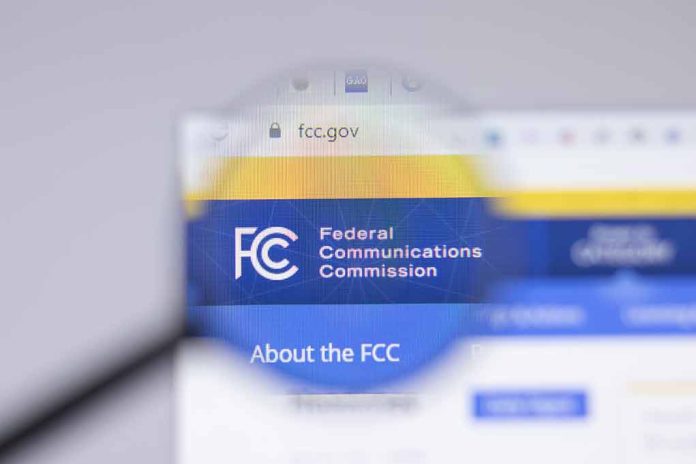
FCC Chairman Brendan Carr launches investigation into NPR and PBS over potential violations of public broadcasting guidelines, raising questions about the future of taxpayer-funded media.
Top Takeaways
- FCC investigating NPR and PBS for potentially airing prohibited commercial advertisements.
- Investigation focuses on whether underwriting announcements violate rules against commercials.
- NPR and PBS maintain compliance with FCC regulations.
- Republican lawmakers considering bills to defund public broadcasters.
- Critics argue investigation is an attempt to intimidate and silence media outlets.
FCC Launches Probe into Public Broadcasters
The Federal Communications Commission (FCC) has initiated an investigation into National Public Radio (NPR) and the Public Broadcasting Service (PBS) over concerns that they may be violating federal law by airing commercial advertisements. FCC Chairman Brendan Carr, appointed by former President Donald Trump, is spearheading the inquiry, which focuses on whether corporate sponsorship messages on these public broadcasters cross the line into prohibited commercial content.
Carr has sent letters to NPR CEO Katherine Maher and PBS CEO Paula Kerger regarding the investigation. The FCC allows businesses to support noncommercial stations through underwriting sponsorships, which have different rules than typical ads. However, Carr expressed concerns that some of these announcements may violate regulations.
Potential Implications for Public Broadcasting Funding
The investigation comes at a critical time as Congress considers whether to continue providing taxpayer funding to NPR and PBS. Carr plans to inform lawmakers about the probe, which could influence their decision-making process. This development has reignited the ongoing debate about the use of public funds in media and the perceived ideological slants of public broadcasters.
“I am concerned that NPR and PBS broadcasts could be violating federal law by airing commercials. In particular, it is possible that NPR and PBS member stations are broadcasting underwriting announcements that cross the line into prohibited commercial advertisements.” – FCC Chair Brendan Carr
Republican lawmakers have introduced bills to defund NPR and PBS, citing concerns about bias in their news coverage. Former President Trump has expressed support for cutting funding to public broadcasters, labeling NPR as a “liberal disinformation machine.” The investigation could provide ammunition for those seeking to reduce or eliminate taxpayer support for these organizations.
Public Broadcasters Defend Compliance
Both NPR and PBS have strongly defended their practices, asserting that they operate within the established regulatory framework. NPR CEO Katherine Maher stated that the organization is confident any review will confirm their adherence to FCC rules. Similarly, PBS CEO Paula Kerger emphasized their commitment to noncommercial educational programming and welcomed the opportunity to demonstrate compliance with advertising restrictions.
“We are confident any review of our programming and underwriting practices will confirm NPR’s adherence to these rules.” – Katherine Maher
Critics of the investigation, including FCC commissioners Anna Gomez and Geoffrey Starks, both Democrats, have characterized it as an attempt to intimidate and silence media outlets. They argue that the FCC should not be involved in actions that could potentially threaten the free flow of information and the marketplace of ideas.
Historical Context and Future Implications
This is not the first time public broadcasting has faced scrutiny and threats to its funding. During Trump’s first term, attempts to eliminate funding for the Corporation for Public Broadcasting were unsuccessful, despite Republican control of Congress. However, the current investigation, coupled with renewed legislative efforts, could pose a significant challenge to the future of publicly funded media in the United States.
As the investigation unfolds, it will likely intensify the debate over the role of public broadcasting in American society and the appropriate use of taxpayer dollars in media. The outcome could have far-reaching consequences for the media landscape and the availability of noncommercial educational programming across the nation.
Sources:
- Trump FCC chair targets NPR, PBS for investigation ahead of Congressional threats to defund
- FCC Chairman Launches Investigation Into NPR And PBS Over Program Sponsorships — And Warns About Future Government Funding
- FCC chairman launches investigation into NPR and PBS over alleged airing of commercials




